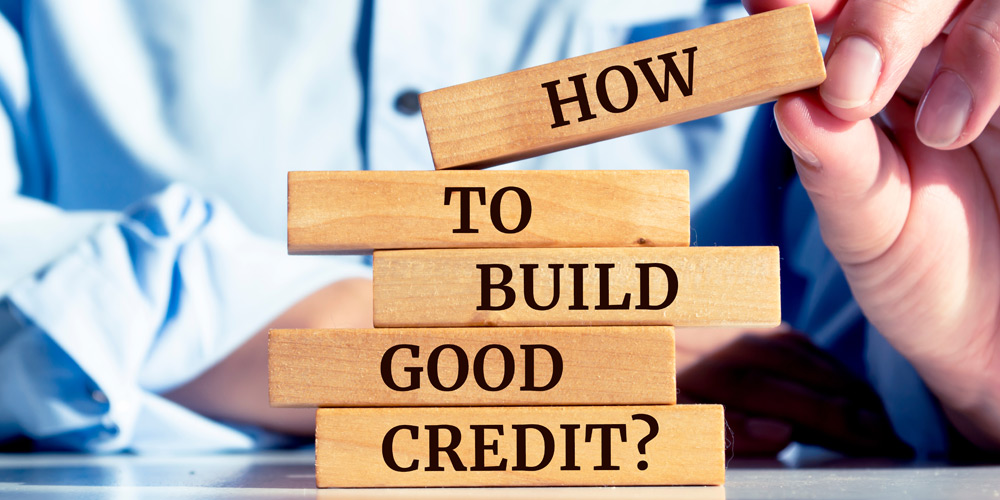How to Build Credit Without a Credit Card

Obtaining credit isn’t easy for everyone.
In fact, 26 million Americans are considered credit invisible, meaning they don’t have a credit file. Additionally, 21 million Americans are considered “unscorable” because their credit file is thin and doesn’t contain enough information for creditors to feel comfortable extending credit.
“People who don’t have credit cards may be excellent money managers, but they’re not getting consideration of that aspect of their money management,” says Stephanie Yates, Ph.D., endowed professor and director of Regions Institute for Financial Education at the University of Alabama at Birmingham.
Despite this circumstance, improving your credit score may not require a credit card. Understanding the factors that impact your credit file is more important than the type of credit you’re using.
“You definitely don’t need to have a credit card to have a FICO score,” says Thomas Quinn, vice president of of Strategic Alliances at FICO. “As you pay as agreed, your positive behavior is reflective in the score and will help you get a higher score.”
Breaking down the credit score
A FICO credit score is made up of your payment history (35%), amounts owed (30%), length of credit history (15%), new credit (10%), and credit mix (10%).
To generate a FICO credit score, you need at least one credit obligation that has been open for six months or more and reported to the credit bureau within the last six months. It can be a personal loan, auto loan, credit card, or student loan. Additionally, payment history is reported every 30 days on a credit card or loan.
“The biggest thing is that you pay on time,” says Darren Liddell, an accredited financial counselor and freelance financial coaching consultant, as late payments can hurt your score.
Credit improves gradually and if you have no credit, it can be easier for your credit score to jump from 0 to 600 than it would be for it to increase from 540 to 800. Your bad credit marks will eventually lessen the impact after a certain period of time.
“As previous blemishes age, they have less of an impact on the score,” Quinn says. “The score is forgiving as it takes into account newer behaviors that are good. It’s a gradual increase over time.”
Accessing your credit report from one of the credit reporting agencies will allow you to see what’s in your file and if you have any inaccuracies on your report.
6 ways to build credit without a credit card
In times of economic downturn, banks and financial institutions often have tougher restrictions in place for extending credit to borrowers. According to the St. Louis Federal Reserve, approximately 67% of domestic banks raised their standards for issuing loans and credit cards at the peak of the Great Recession in 2009.
If you are ineligible for a credit card account, or if you aren’t in the market for one, but want to establish good credit, you may still have options. The following methods may allow consumers to build their creditworthiness without the use of a credit card.
Personal loans
Paying back an installment loan, a debt with fixed payments and interest for a set number of months, can show creditors you can responsibly handle credit. If your credit is not good enough to qualify for an unsecured loan, you may consider a secured loan, which requires collateral. Lenders may report your loan repayments to the credit bureaus and on-time payments can help boost your credit score.
Having a close relationship with your banker can help you secure a personal loan at a local bank or credit union in your community.
“If you have a personal banker who knows you by name, you can explain that you’re looking to build your credit, and then they can plead your case to the loan committee,” Yates says.
Student loans
Federal student loans are installment loans that don’t require borrowers to have a credit history or co-signer.
40% (approximately 10.4 million) of credit invisibles are under the age of 25, and since student loans may be their first loan, it can be challenging for them to qualify for other types of credit products, as consumers can’t apply for a credit card until they are 18 years old.
“It’s typically harder to get other types of loans if you don’t have a credit history,” Liddell says.
Student loans may help build your credit based on payment history. They could also add to your credit mix.
Lending Circles
For those with limited access to mainstream financial services, lending circles are a community-based financial tool that helps those establish credit and increase their scores. The Mission Asset Fund and its nonprofit partners across the country offer lending circles that report payments to the three major credit bureaus (TransUnion, Equifax, Experian).
Participants in a lending circle make a monthly payment to a large pot and every month someone receives the full loan amount. For example, if the lending circle had 10 participants for a $1,000 loan, they would each pay $100 on a monthly basis and alternate who receives the $1,000 pot until everyone receives it. Lending circles typically consist of 6 to 12 individuals, and provide interest-free loan amounts ranging from $300-$2,400. Lending circle participants often come from the same local community.
“People like lending circles because they’re helping others in need and everyone gets a payout,” Liddell says.
Applicants provide proof of income, a debt-to-income ratio below 50% to participate, and also complete a financial education curriculum. On average, Mission Asset Fund reported that credit scores of an evaluated group of participants increased by 168 points at the end of the loan.
Experian Boost
Experian Boost allows consumers to incorporate non traditionally counted payments such as cell phone and utility bills into their FICO credit score.
Users link their bank account to their credit report through Experian. Through this product, only positive payment history is considered. It helps individuals in creating or increasing their scores by reporting these alternative payments. For those who need a credit boost, this option can offer results quickly and it’s free.
“It’s designed to help speed up the process of rebuilding credit, which can usually take 6 to 12 months of on-time payments,” Yates says.
Secured Credit Card
If you plan on building your credit to qualify for a credit card, options such as a secured card, or becoming an authorized user, can give you a preview of how to manage these financial products responsibly.
Secured credit cards are backed by a cash deposit as collateral. They can help establish or rebuild your credit as payments show up on your credit report. The Federal Reserve Bank of Philadelphia reports that 20% of secured credit card users graduated to unsecured cards within 11 months of opening the account.
“As long as you pay back the bills on time, after 6 months to a year, you may have enough credit history to apply for a credit card without a security deposit,” says Andrew Ching, Ph.D., professor of marketing and economics in the Carey Business School at Johns Hopkins University.
"Secured cards can provide a gateway to obtaining an unsecured card as it provides direct evidence of how you responsibly used the card," Ching says.
Become an authorized user
Family or community members often help younger people establish and gain access to credit. Young people may piggyback off a family member’s credit when they have not established any credit activity of their own.
As an authorized user on a credit card, the credit card’s primary account holder is added to your credit report. It’s important to evaluate the primary account holder’s credit history before becoming an authorized user, as their repayment history will link to your credit report.
“Becoming an authorized user can have some additional speed for those building out their credit file, if the authorized user has had the card for a long time and doesn’t have a balance on it,” Quinn says.
Building credit to obtain a credit card
Credit cards give consumers a convenient and secure way to pay. Most credit card companies give users different perks like rewards, discounts, and cash back. Additionally, credit cards also offer revolving credit, which allows users to borrow and repay their credit without having to reapply.
“A lending circle or loan has an end date, but once you’re approved for a credit card, you can continue using it for years,” Liddell says.
Before becoming a credit cardholder, it’s important to know how credit works so you don’t damage your credit. Example: With a $1,000 card limit, your balance on the card shouldn’t be more than $300. You can ask the bank for a lower credit limit if you believe you cannot afford the amount offered.
“You need to make sure you have the discipline to make payments and not hit the spending limit on your card,” Yates says. “Keep your credit utilization ratio around 30%.”
“You can request the bank lower your credit card limit, which can help ensure you don’t overspend,” Ching says. “You want to make sure you pay back the bill every time, otherwise it becomes an expensive loan.”
Please note the below article contains links to external sites outside of OppU and Opportunity Financial, LLC. These sources, while vetted, are not affiliated with OppU. If you click on any of the links you will be sent to an external site with different terms and conditions that may differ from OppU’s policies. We recommend you do your own research before engaging in any products or services listed below. OppU is not a subject matter expert, nor does it assume responsibility if you decide to engage with any of these products or services.



